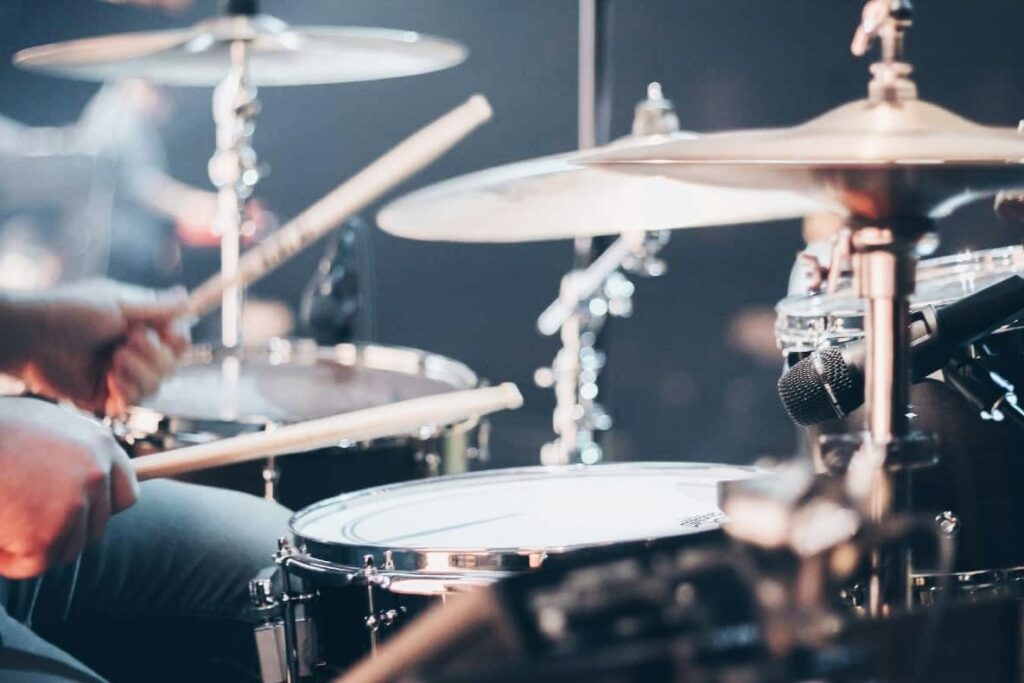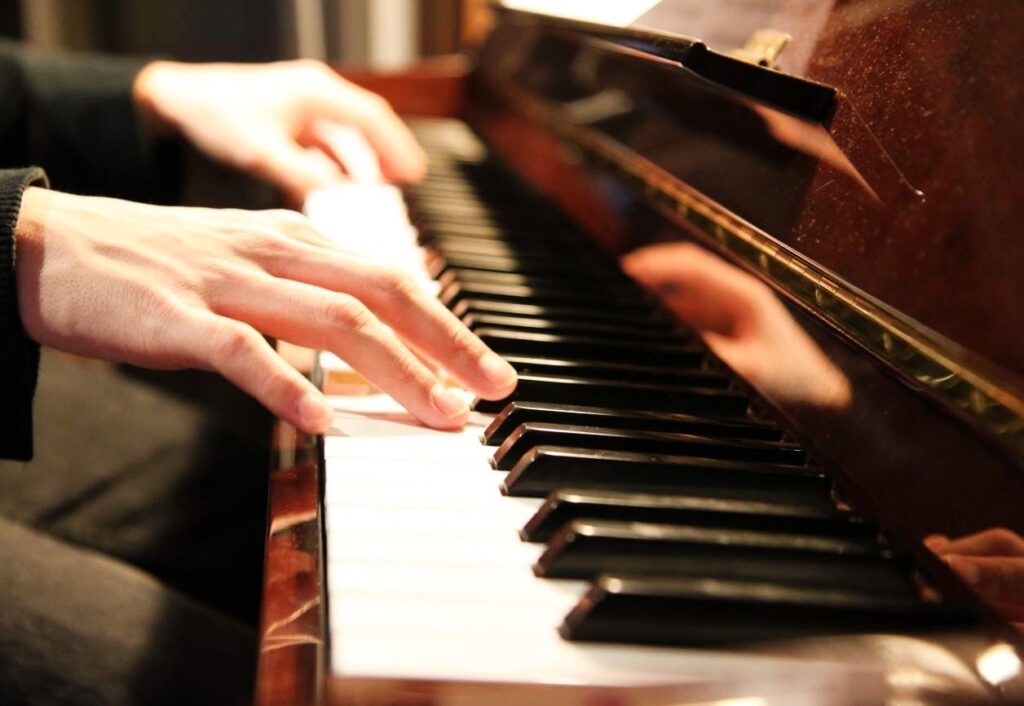Choosing the Right Instrument
Understanding Your Musical Preferences
Your musical tastes will help you decide which instrument best fits you. Consider the kind of music you like listening to and the instruments utilized in those genres most often.
Should you like classical music, you could find yourself attracted to instruments like the violin or piano. Conversely, you may be more motivated to pick up the guitar or drum set if you like rock or pop music. Knowing your musical tastes will enable you to choose an instrument you like playing and inspire you to practice.

Considering Your Physical Abilities
One should take physical ability into account when selecting an instrument. Every instrument calls for various coordinated physical motions. Playing the trumpet calls for excellent breath control and embouchure; playing the piano calls for dexterity in both hands. Consider physical restrictions or difficulties such as hand size, mobility, or breathing problems. See a professional or music instructor to help you choose an instrument best for your physical ability.
Tools are specially made to meet specific physical demands if your movement or skill is restricted. For example, there are altered keyboards with bigger keys or guitars with shorter necks. For those with physical difficulties, these instruments might help them to play and appreciate music. Investigate the alternatives to choosing an instrument that lets you express your musicality without restrictions.
One should also consider the instrument’s weight and dimensions. Some instruments, such as the cello or drum set, may be somewhat heavy and big, hence the need for physical strength for handling and transportation. If you want to avoid the physical demands of an instrument, consult experts who can provide opinions on the practicality and feasibility of playing specific instruments depending on your physical capacity.
Researching Different Instruments
Knowing your musical tastes is essential in selecting the correct instrument for you. Consider the instruments often utilized in the genres of music you love listening to. This will assist you to reduce your choices and identify an instrument that fits your musical taste.
Think then about your physical capacity. Selecting an instrument you are comfortable with is crucial as some need a certain degree of physical skill or strength. For little hands, a prominent instrument like a double bass may not be the most excellent match.
If you know the instruments fit your tastes and physical capabilities, research is next. Examine the many kinds of instruments in your selected category and study their features, playing styles, and sound quality. This will enable you to make a wise choice and better appreciate the value of every instrument.
Recall that your musical path depends heavily on the instrument you choose. Spend some time looking at many choices, and then consider consulting seasoned musicians or music professors.
Setting Up Your Practice Space
Creating a Comfortable Environment
Establishing your practice area should include designing a pleasant surroundings that lets you concentrate and enjoy your sessions. Your capacity to focus and advance on your instrument depends on your comfort level.
These guidelines will assist you to design a suitable practice area:
- Ensure your posture and seated position are correct to prevent strain or pain. Change the height of your instrument based on the chair you use with appropriate back support.
- Enough illumination is essential for reading sheet music and properly seeing your instrument. Arrange a lamp or other light source to highlight your practice space without generating glare.
- Maintaining a pleasant temperature and humidity level in your practice area can help Extreme temperatures or too much humidity might compromise the state of your instrument and cause playing discomfort.
Remember, establishing a pleasant surrounding is more than simply physical comfort; it’s about furnishing a setting that will inspire and drive you to practice consistently. Spend time arranging objects that make you happy and help you feel connected to your instrument in your practice area.
Organizing Your Equipment
Regarding equipment organization, you should create a system that lets you quickly access and effectively utilize your instruments and accessories. These suggestions may assist you to keep your practice area clean and your equipment in good condition:
- Start by grouping your tools—instruments, cables, accessories—into several categories and labeling them. Then, label every category to locate what you need more easily.
- Invest in storage solutions fit for your particular tools and accessories. This might call for shelves, hooks, racks, or instrument boxes. Make sure you choose choices that provide appropriate structure and protection.
- Plan a consistent maintenance schedule for your accessories and instruments. This might call for tuning, cleaning, and damage check-through. Maintaining the lifetime of your equipment and guaranteeing the best performance depend on your maintenance.
Recall that a well-organized practice area facilitates the search and use of your tools and generates a suitable setting for concentrated and effective practice sessions.
Minimizing Distractions
Practice your instrument in a concentrated and distraction-free surrounding to help you Reducing distractions can tremendously improve your practice sessions and enable you to maximize your time.
These techniques will allow you to stay concentrated:
- Eliminate any extraneous noise in your practicing area. To cut outside noises, choose a quiet space or use soundproofing devices.
- To prevent calls or alerts from interrupting you, turn off your phone or set it to quiet.
- Eliminate any clutter or extraneous objects from your practicing space that can cause distraction.
Not only will a dedicated and orderly practice area improve your concentration, but it will also boost output and streamline your practice sessions. Reducing distractions can help you to engage your instrument and produce more significant outcomes.
Developing Proper Technique
Learning Correct Hand and Finger Positions
One of the first things you should concentrate on is learning accurate hand and finger postures while learning to play an instrument. Clear, precise notes depend on proper hand and finger positioning.

These are some fundamental guidelines to assist in the development of effective techniques:
- Keeping your fingers curled will help you place them on the instrument, which allows you to play with more accuracy and control.
- Positioning your fingers near the frets or keys can help you generate a clear sound and reduce the possibility of inadvertently muting the strings or keys.
- Tension in your palm and fingers might impede your playing; relax both. Allow smooth movement and improved control by relaxing your hand and fingers.
Recall that regular practice of proper hand and finger positioning will strengthen your basis for instrumental performance.
Mastering Breath Control
Learning to play a musical instrument depends on developing respiratory control. Reasonable breath control lets you generate a steady, under-control sound whether singing or playing a wind instrument. The method of regulating your breath while playing is known as “breath control,” it involves adjusting your air intake, pace of exhaling, and pressure you apply. This is an ability that calls both strategy execution and practice.
These pointers should help you improve your breath control:
- Exercises involving deep breathing help to strengthen your diaphragm and boost lung capacity.
- Stressing a consistent airflow while playing helps to prevent abrupt bursts or pauses.
- Support your breathing and produce a consistent air stream with your abdominal muscles.
Recall that consistent and expressive tone on your instrument depends on reasonable breath control. Including these suggestions in your practice schedule will improve your whole musical output.
Understanding Rhythm and Timing
Regarding instrument performance, one depends on understanding rhythm and time. It is the foundation of music and may help you exceedingly perform. These suggestions can assist you to improve your rhythm and timing:
- To learn a steady sense of time, practice using a metronome—a useful tool. Starting with slow-tempo fundamental exercises or songs, gradually increase the pace as you become more comfortable.
- Playing with counting out loud can help you absorb the rhythm and keep in time with the music. This approach is especially beneficial for learning difficult rhythms.
- Learning diverse rhythms and styles can assist you to appreciate numerous musical genres. After observing them, try to replicate the rhythmic patterns on your instrument.
Remember that mastery of rhythm and timing primarily relies on experience. Through continual effort and these approaches, you may develop your overall musicality and obtain a strong feeling of rhythm.
Effective Practice Strategies
Setting Clear Goals
Regarding developing instrumental skills, it is essential to have well-defined objectives. Setting goals gives you direction and drive, enabling you to remain targeted and monitor your development.
These guidelines will assist you in creating well-defined objectives:
- First, decide what with your instrument you want to accomplish. Whether your goal is to study a particular piece, hone your technique, or become proficient in a given ability, a clear one will direct your practice.
- Sort your objectives into smaller, doable assignments. This will minimize overload and increase their achievability.
- Plan for every aim. Deadlines will help you to remain on target and hold you responsible.
Let us now explore some practical practice methods to enable you to meet your objectives!
Breaking Down Difficult Passages
It might be beneficial to divide the material into smaller, more doable chunks under challenging passages of a piece of music. This enables you to concentrate on specific regions needing more work and attention. Separating these pieces allows you to work on them separately and progressively increase your confidence and ability.
Examining the text helps one to grasp better and recall it by offering insightful analysis of its structure and patterns. Spend some time spotting any technical problems or challenging transitions in the passage and developing plans to overcome them. Remember, practice makes perfect; thus, one of the main ways to raise your general performance is to break down challenging sections.
Utilizing Practice Techniques
Using practice strategies can help you to improve your instrument performance and efficiency much more quickly. These are some useful techniques you may include in your daily practice:
- Chunking—that is, dissecting a difficult area into smaller pieces and practicing each separately—may help one to master a certain work.
- Playing at a slower pace lets you concentrate on precision and technique, which helps you to progressively speed up as you become better.
- Repetition of a challenging area several times helps to strengthen muscle memory and increase fluency.
These practice strategies can help you approach difficult pieces with greater confidence and efficiency by including them in your everyday schedule.
Building Musicianship Skills
Studying Music Theory
A well-rounded musician must study music theory if they are to be whole. Knowing the basic ideas of music theory can help you to improve your creative potential and musical skills. Learning scales, chords, and harmony can help you to appreciate music’s conception and arrangement. Furthermore, learning music theory will enable you to understand better and interpret musical works, therefore enabling more precise and intentional expression.
Improving Ear Training
Becoming a competent musician requires constant improvement of your ear training. Ear training is the capacity to by ear distinguish and identify many musical components including pitches, intervals, chords, and rhythms. It helps you increase your general musicality, enhance your sense of pitch, and play-by-ear skills.
To improve your ear training, here are some effective strategies you can incorporate into your practice routine:
- Interval Recognition: Practice identifying different intervals by listening to them and associating them with familiar songs or melodies. Start with simple intervals like the perfect fifth or major third and gradually move on to more complex ones.
- Chord Progression Analysis: Train your ears to recognize common chord progressions by listening to songs and analyzing the harmonic structure. This will help you anticipate chord changes and improvise more confidently.
- Transcription: Transcribing music by ear is an excellent way to develop your ear training. Start with simple melodies and gradually progress to more complex pieces. This will improve your ability to accurately reproduce music and enhance your understanding of musical structure.
- Ear Training Apps and Software: There are numerous ear training apps and software available that can provide structured exercises and feedback to help you improve your ear training skills. These tools can be a valuable addition to your practice routine.
Remember, ear training is a skill that takes time and consistent practice to develop. By incorporating these strategies into your practice routine, you can enhance your ability to listen, understand, and play music with greater accuracy and musicality.
Developing Sight-Reading Abilities
Developing sight-reading abilities is an essential skill for any musician. Sight-reading involves being able to read and play music on the spot, without prior practice. It allows you to quickly learn new pieces and perform them accurately. To improve your sight-reading abilities, here are some tips:
- Practice regularly: Like any skill, sight-reading requires practice. Set aside dedicated time each day to work on sight-reading exercises.
- Start with simple pieces: Begin with easy pieces that have a slow tempo and simple rhythms. This will help you build confidence and accuracy.
- Focus on rhythm: Pay close attention to the rhythm of the music. Practice clapping or tapping the rhythm before playing the notes.
- Use a metronome: A metronome can help you develop a steady tempo and improve your timing.
- Read ahead: Train yourself to look ahead in the music and anticipate upcoming notes and rhythms.
- Practice different genres: Sight-read music from various genres to improve your versatility and adaptability.
Remember, developing sight-reading abilities takes time and patience. With consistent practice and dedication, you can become a proficient sight reader.
Seeking Guidance from Professionals
Taking Lessons from Experienced Teachers
Regarding developing instrumental talents, the knowledge of seasoned instructors is among the most useful tools at your disposal. Learning from experts may provide you with priceless direction and insights that will help you considerably speed up your development. These instructors may help you acquire correct technique, enhance your musicianship, and provide insightful comments on your development as they have years of expertise and understanding in their particular instruments.
Approaching your lessons with a growth mentality can help you to maximize them. Allow criticism and be ready to commit the required practice time to develop. When necessary, probe and get an explanation. Recall that your instructor exists to help and mentor you on your musical path.
Apart from one-on-one instruction, take into account attending seminars or group sessions. These might create a cooperative and encouraging atmosphere where you could pick skills from your classmates as well as from the instructor. This is a fantastic chance to get many viewpoints and grow from the experiences of other students.
Although regular practice is essential for improvement, having a qualified instructor by your side can help you grow as a musician far faster. Thus, don’t hesitate to consult experts and use their knowledge.
Attending Workshops and Masterclasses
One great chance to improve your instrumental abilities is by going to master seminars and workshops. These gatherings provide you with a stage on which to choose knowledge from seasoned experts and get an understanding of their methods. Usually, seminars concentrate on certain facets of instrument performance, including technique, interpretation, or repertory. Conversely, masterclasses provide a deeper study of a certain work or musical style. Engaging in these activities will help you to improve your playing skills and increase your musical knowledge.
Apart from the insightful information acquired, going to seminars and masterclasses lets you interact with other artists who are as passionate about something. Working with other musicians via networking could result in projects, gigs, and a friendly community. These relationships will help you to grow in talent and widen your musical horizons.
Coming ready will help you to maximize your workshop or masterclass experience. Learn the content or repertory that will be addressed, then pack any required sheet music or tools. Notes taken throughout the class will help you to remember key ideas and methods the teacher presents. Furthermore, improving your educational process is active listening and questioning. Recall that these events are meant to let you develop as a musician, so make use of the information and experience at your disposal.
Joining Music Communities
Joining music communities can greatly enhance your musical journey. By connecting with fellow musicians and music enthusiasts, you can gain valuable insights, learn from their experiences, and collaborate on projects. Being part of a music community provides a supportive environment where you can share your passion, seek advice, and receive constructive feedback.
Here are some benefits of joining music communities:
- Networking opportunities: Music communities offer a platform to meet and connect with like-minded individuals who share your love for music. This can lead to collaborations, performance opportunities, and even potential career prospects.
- Learning opportunities: Interacting with musicians from different backgrounds and skill levels can expose you to new techniques, styles, and genres. You can attend workshops, jam sessions, and masterclasses organized by the community to expand your musical knowledge.
- Motivation and inspiration: Surrounding yourself with passionate musicians can ignite your own motivation and inspire you to push your boundaries. Seeing others excel in their craft can serve as a reminder of what is possible with dedication and practice.
Whether it’s joining an online forum, attending local meetups, or becoming a member of a music association, being part of a music community can provide invaluable support and opportunities for growth in your musical journey.
Maintaining Instrumental Skills
Regular Practice Routine
Mastery of your instrumental talents depends on developing a consistent practice schedule. Developing your capacity depends mostly on consistency. These pointers should assist you in creating a good practice schedule:
- Make time every day just for practice. This will help you to stay dedicated to your objectives and guarantee development.
- Divide your practice time into smaller, concentrated chunks. This allows you to focus on difficult sections or certain approaches.
- Track your development in a practice notebook and create session objectives.
Remember, you will improve the more you practice. Keep motivated and diligent, and your instrumental talents will show notable development.
Performing in Public
Once you have honed your instrumental abilities, you should publicly show off your gift. This will give you a great experience, help you connect with your audience, and boost your confidence. Though public performing might be nerve-wracking, with enough preparation and practice, you can provide a remarkable performance.

Here are some tips to help you make the most of your public performances:
- Prepare thoroughly: Practice your pieces thoroughly to ensure that you are well-prepared. This includes memorizing your music, working on your technique, and rehearsing with accompaniment if necessary.
- Manage stage fright: It is normal to feel nervous before a performance, but there are techniques you can use to manage stage fright. Deep breathing exercises, positive visualization, and focusing on the music can help calm your nerves.
- Engage with your audience: Connect with your audience by making eye contact, smiling, and showing enthusiasm. This helps create a positive and engaging atmosphere.
Conclusion
Expanding your musical knowledge and sharpening your instrumental talents depend on ongoing study. There are always fresh approaches and ideas to pick up, regardless of your level of expertise as a musician. Investigating other musical genres and styles will expand your creative horizons and motivate fresh thoughts. Learning music theory may also improve your capacity to organize and create music and help you grasp how it works.
Attending seminars and masterclasses under seasoned experts could provide insightful analysis and direction. These changes let you get on-demand assistance on enhancing your technique and performance and learn from subject-matter specialists. Additionally creating a conducive atmosphere for learning and cooperation by combining music communities and interacting with other musicians might help one.
Join HyperTribe today and unlock your full musical potential. Whether you’re just starting or looking to refine your skills, our membership provides the tools and support you need to succeed.



